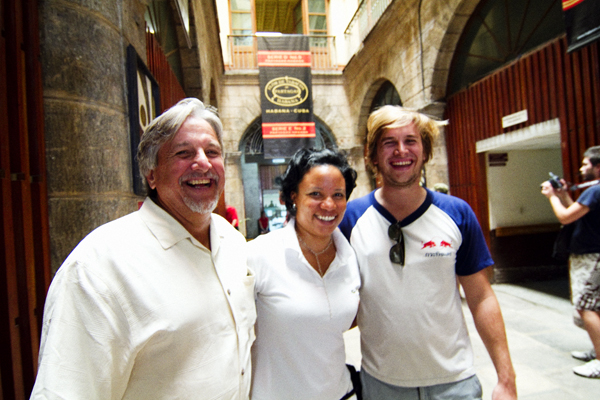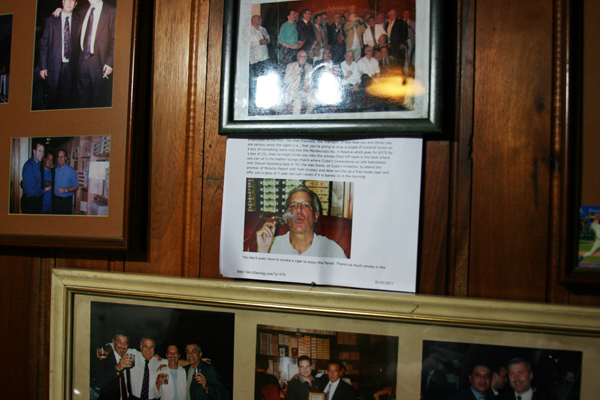As I said, in Havana everything is always the same; everything is always different. We decided to take a tour of the cigar factory which we had not done in five years. Back then, you could take your camera; this year you had to go to a coat-check room and store your camera. I asked our guide about this and she said that with “special consideration” you could take pictures. I took this to mean that you needed to pay someone. For a country that hates capitalism the government participates in a great number of capitalistic enterprises.
Yet the very fact that everyone who works here, from the director of the cigar store to the portly man in a Panama hat who does nothing but open and close the door for visitors to the factory, is protected by the state means that insolence and derision are part of the uniform for anyone in the so-called service industries. Take, for instance, our guide at the Partagás factory, Maria. The first thing she did was ask us where we were from. When we told her the U.S., she rolled her eyes and said, “Oh, god. Americans. I have a headache already and they give me Americans.”
I asked her what was wrong with Americans. “You talk too much,” she said. “You talk more than old women. It gives me a headache.” It just so happened that as she was telling me this, Hardy and Fletch were standing at the rear of our little tour group having a private conversation. Maria stared at them as if she were an exasperated grade school teacher. “This is what I mean,” she said to our group which included four Russians. She worked her hand in the air like a shadow puppet. “Talk, talk, talk. They never shut up, these Americans.”
Then Maria gave us the ground rules for our tour: Do not go anywhere she did not go. Do not talk to the workers. And, most importantly, do not try and buy any cigars from the rollers. “If you try to buy a cigar, then the tour is over. Immediately. Understand?”
This was an odd restriction as we soon found out when we reached the top floor of the factory. This is the room where fifty or so cigar rollers sit at long tables side-by-side rolling the Cohibas and Montecristos that are for sale in the cigar store downstairs. When I asked Maria what happened to a roller who tried to sell a cigar to someone like me, she said dismissively, “They would be fired, of course.” Yet we weren’t in the room for two minutes before one of the rollers propositioned us to buy his cigars. “Good price,” he whispered while Maria’s back was turned. And he wasn’t the only one. Four or five other rollers, both men and women, offered to sell us cigars. And none of them seemed particularly worried that they might get caught doing it. I was tempted to buy some. Just to see what Maria would do. But then again, maybe she wasn’t bluffing. And the poor bastard would be fired. The possibility of that was enough to keep me from causing any trouble. Which is probably what Maria had in mind when she laid out the rules.
The funny thing was that as rude and obnoxious as Maria was during the tour, the minute it ended and Fletch handed her a $20 tip—or about a month’s salary for her—she suddenly became very pleasant. She said she loved Americans. “God bless America.” And then she suggested that we take some photos with her. Which we did. With her wrapping her arms around the boys and grinning as if she were the winner of the Miss Cuba contest. Amazing what a little dinero can do.




Recent Comments